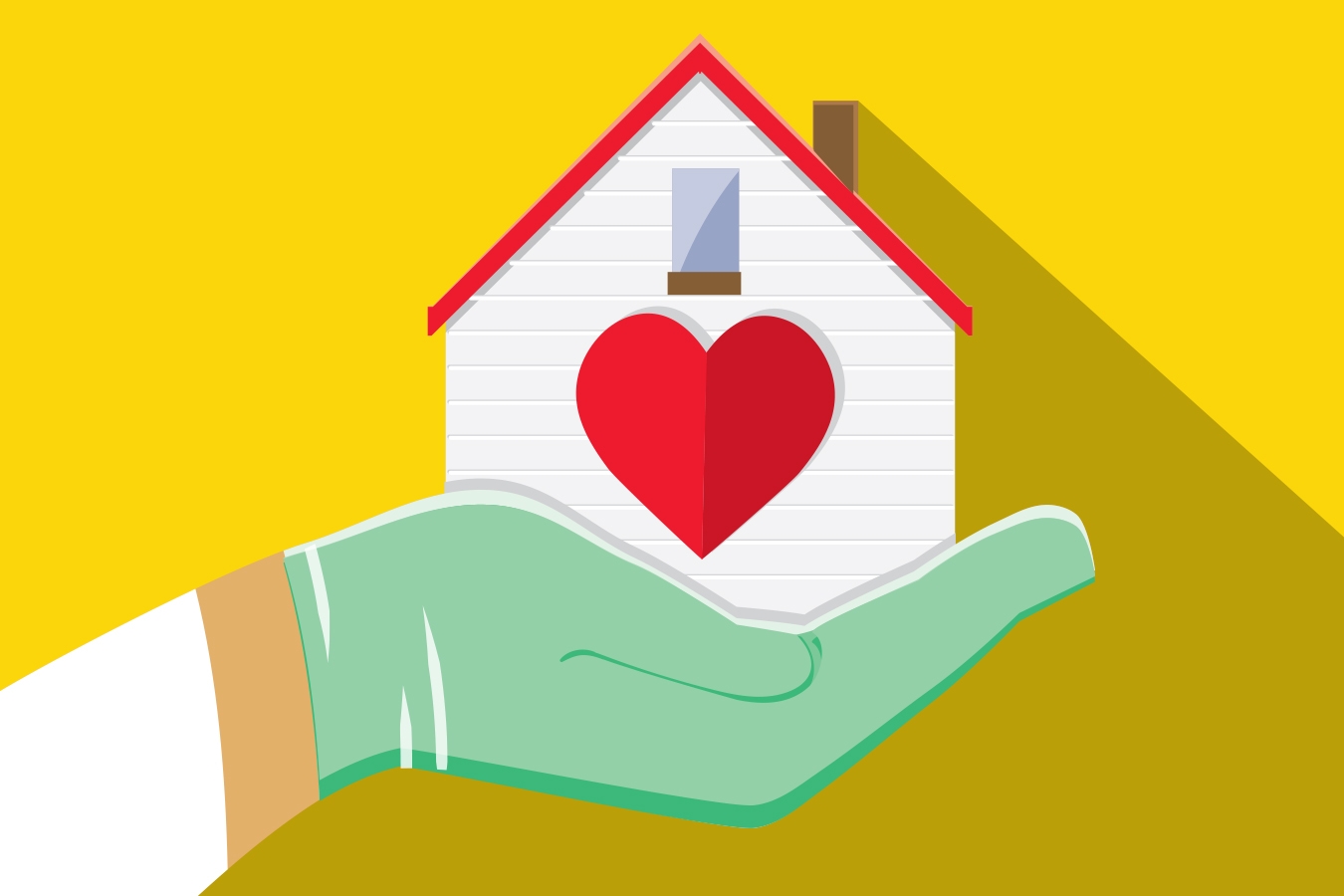What Is Home Health Care: Benefits, Types, Services and Cost
 |
| Home Health Care. Photo: KnowInsiders |
The range of home health care services a patient can receive at home is limitless. Depending on the individual patient's situation, care can range from nursing care to specialized medical services, such as laboratory workups.
Some research suggests nearly 90% of people over 65 want to age in place—to live at home as long as possible. But to make it happen, additional care is often necessary, which is why some families turn to home health care services.
Home health providers are working to reduce avoidable hospital readmissions, both as individual agencies and as part of the Home Health Quality Improvement campaign led by quality improvement organizations (QIOs). Home health providers are committed to quality improvement and are interested in working as partners with hospitals to prevent unnecessary hospital readmissions.
What is Home Health Care?
At its basic level, "home health care" means exactly what it sounds like – medical care provided in a patient's home. Home health care can include broad care given by skilled medical professionals, including skilled nursing care, physical therapy, occupational therapy and speech therapy. Home health care can also include skilled, non-medical care, such as medical social services or assistance with daily living from a highly qualified home health aide. As the Medicare program describes, home health care is unique as a care setting not only because the care is provided in the home, but the care itself is "usually less expensive, more convenient, and just as effective" as care given in a hospital or skilled nursing facility.
Home health care helps older adults live independently for as long as possible, even with an illness or injury. It covers a wide range of services and can often delay the need for long-term nursing home care.
Home health care may include occupational and physical therapy, speech therapy, and skilled nursing. It may involve helping older adults with activities of daily living, such as bathing, dressing, and eating. It can also include assistance with cooking, cleaning, other housekeeping, and monitoring one’s medication regimen.
It is important to understand the difference between home health care and home care services. Although home health care may include some home care services, it is medical in nature. Home care services include chores and housecleaning, whereas home health care usually involves helping someone to recover from an illness or injury. Home health care professionals are often licensed practical nurses, therapists, or home health aides. Most of them work for home health agencies, hospitals, or public health departments licensed by the state.
Different Types of Home Health Care
You and your doctor will determine your care plan and services you may need at home. At-home care services may include:
Doctor care
A doctor may visit a patient at home to diagnose and treat the illness(es). He or she may also periodically review the home health care needs.
Nursing care
The most common form of home health care is some type of nursing care depending on the person's needs. In consultation with the doctor, a registered nurse will set up a plan of care. Nursing care may include wound dressing, ostomy care, intravenous therapy, administering medication, monitoring the general health of the patient, pain control, and other health support.
Physical, occupational, and/or speech therapy
 |
| Photo: Manchester Specialty Programs |
Some patients may need help relearning how to perform daily duties or improve their speech after an illness or injury. A physical therapist can put together a plan of care to help a patient regain or strengthen use of muscles and joints. An occupational therapist can help a patient with physical, developmental, social, or emotional disabilities relearn how to perform such daily functions as eating, bathing, dressing, and more. A speech therapist can help a patient with impaired speech regain the ability to communicate clearly.
Medical social services
Medical social workers provide various services to the patient, including counseling and locating community resources to help the patient in his or her recovery. Some social workers are also the patient's case manager--if the patient's medical condition is very complex and requires coordination of many services.
Care from home health aides
Home health aides can help the patient with his or her basic personal needs such as getting out of bed, walking, bathing, and dressing. Some aides have received specialized training to assist with more specialized care under the supervision of a nurse.
Homemaker or basic assistance care
While a patient is being medically cared for in the home, a homemaker or person who helps with chores or tasks can maintain the household with meal preparation, laundry, grocery shopping, and other housekeeping items.
Companionship
Some patients who are home alone may require a companion to provide comfort and supervision. Some companions may also perform household duties.
Volunteer care
Volunteers from community organizations can provide basic comfort to the patient through companionship, helping with personal care, providing transportation, emotional support, and/or helping with paperwork.
Nutritional support
Dietitians can come to a patient's home to provide dietary assessments and guidance to support the treatment plan.
Laboratory and X-ray imaging
Certain laboratory tests, such as blood and urine tests, can be performed in the comfort of the patient's home. In addition, portable X-ray machines allow lab technicians to perform this service at home.
Pharmaceutical services
Medicine and medical equipment can be delivered at home. If the patient needs it, training can be provided on how to take medicines or use of the equipment, including intravenous therapy.
Transportation
There are companies that provide transportation to patients who require transportation to and from a medical facility for treatment or physical exams.
Home-delivered meals
Often called Meals-on-Wheels, many communities offer this service to patients at home who are unable to cook for themselves. Depending on the person's needs, hot meals can be delivered several times a week.
Benefits of Home Health Care
 |
| Photo: Kaiser Health News |
There are many benefits to home health care, experts say. Most obviously, it allows seniors to stay at home instead of having to relocate to a facility.
Home health care also reduces loneliness among seniors, which can improve their mental and physical health, says Pecora. He points out that during the coronavirus pandemic, home health care aides were often the only people patients saw. “They form a bond,” says Pecora. “They become part of the family because they’re spending hours—[sometimes] multiple days of the week—with the person.” Sometimes the patient and home health caregiver even vacation together, he says.
Home health care can also help reduce hospital readmissions. For instance, in one systematic review of patients with heart failure, those who received nurse visits at home experienced fewer hospital readmissions and less mortality for up to six months after they were discharged from the hospital compared to patients who didn’t receive nurse visits.
 Best Steps To Start A Home Health Care Business Best Steps To Start A Home Health Care Business Looking to start your own home health care business? Read on to know what to do before starting your own home health care business! |
Challenges of Home Health Care
It can take a little while for some seniors to adjust to having a stranger in their home, says Yount, which is why finding the right fit is so important. As with all things, the first agency you try might not be the best one for you.
But the main challenge, some experts say, is financial. Home health care can be expensive. For this reason, Sun says it’s important for families to plan ahead for the resources they might need in the future.
Home Health Care Costs
In 2020, the median annual cost of in-home medical care in the U.S. was $54,912, according to Genworth, an insurance company that has tracked the cost of care for nearly two decades[3]. This price is based on 44 hours of care a week for 52 weeks. Exact rates vary based on the type of care a patient needs. For example, the cost of an occupational therapist’s services differ from those of a registered nurse, which differ from those of a home health aide.
The median annual cost for “homemaker services” (or non-medical care, such as bathing and meal prep services) was slightly lower: $53,768.
Home health care costs also vary from state to state. For instance, the hourly rate for a home health aide in Louisiana in 2020 was $17 compared to $33 in Minnesota.
It’s also important to note the hourly rates agencies charge aren’t what the employee (whether they’re a registered nurse or a home health aide) makes—the agency needs to inflate the number to cover its own administrative overhead costs. Still, Sun says BrightStar Care—as one example—pays “significantly above the minimum wage in every state we operate in.”
Is Home Health Care Covered by Insurance?
It depends. Medicare covers the cost of skilled home care ordered by a doctor for a limited time, based on specific medical needs. Care needs to be intermittent, which means fewer than seven days a week and for less than eight hours each day, for up to 21 days. Non-medical care, such as meal prep and bathing assistance, doesn’t qualify.
Medicaid coverage is determined at the state level, so it varies greatly—but in most cases, there will be some coverage.
Long-term care insurance, which is purchased from private companies to cover such costs as nursing home care or home health care, covers many services not covered by traditional private insurance. The specifics vary from plan to plan, but most will cover at least part of the cost of home health care.
How Does Home Health Care Work?
The first step toward receiving home health care is to obtain a physician's orders and work with a home health care company to develop a detailed care plan. From there, you will be asked to complete an initial consultation with the patient, during which they assess the patient's needs and develop a plan for treatment. Family members and other caregivers are encouraged to participate in this planning process to ensure consistent and comprehensive care.
When services begin, home health care staff will implement the plan – following all physician orders – and keep the physician updated about the patient's progress. The frequency and type of home health visits will vary depending on the patient's needs. Some patients require daily care while others require only a short visit once or twice per week.
All services are tailored to the patient's needs.
How to Find the Right Home Health Care Agency for You
 |
| Photo: AMN Healthcare |
Often, the best way to find a home health care agency is to ask people who have used similar services for their recommendations, says Yount. “Asking friends and family about their experience is a really great way to get referrals for quality services.” She also recommends talking to a trusted advisor, such as your doctor.
As you narrow down your list and start calling around, Sun suggests asking agencies the following questions:
* Will you have a nurse come in and develop a personalized care plan?
* Will you coordinate with my doctor?
* Will you help me see if I qualify for any financial benefits so I don’t have to pay entirely out of pocket?
Based on the responses you receive, you should be able to partner with a home health care agency that adequately meets the needs of your loved one.
 Does Medicare Cover Home Healthcare? Does Medicare Cover Home Healthcare? Home health care services are a valuable Medicare benefit that provides skilled nursing care, therapy and other aid to people who are largely or entirely ... |
What Is a Home Health Aide?
A home health aide is a professional who provides assistance to patients with special needs, including those who are disabled, chronically ill, or cognitively impaired. They may also provide services for seniors who require assistance in the home.
A home health aide may provide services including checking vital signs, assisting with personal hygiene, administering medication, and employing other elements of a physician-prescribed plan of care.
Home Health Aide vs. Personal Care Aide
The duties of a home health aide and a personal care aide overlap at times, but the key difference is that home health aides typically work for agencies instead of being directly employed by their clients. Home health aides play an important role in the continuity of care, coordinating among caregivers and medical professionals, and tracking the condition and progress of their clients.
While home health aides and personal care aides provide services to the same type of patient, a personal care aide's duties are typically limited to non-medical services. This may include dressing, bathing, cooking, cleaning, running errands, doing laundry, and providing companionship for their clients.
Is Home Health Care Covered by Medicare?
 |
| Photo: Residential Care in Wolverhampton |
Home health care services are covered by Medicare as long as certain eligibility requirements are met. In order to be eligible for Medicare coverage for home health care, you must meet the following requirements:
Be considered "homebound" according to the Medicare definition
Require part-time or intermittent skilled care to improve, maintain, prevent, or further slow the progression of an existing condition
Be under the care of a medical doctor who prescribes home health care (you must have documentation of an in-person visit with said doctor either three months before starting home health care or within one month of when home health care begins)
Medicare typically covers skilled nursing care and rehabilitative services, which may include physical therapy, occupational therapy, and speech therapy. Depending on your needs, additional services like medical social services, durable medical equipment, medical supplies, and other in-home services may also be covered.
If you have Original Medicare, you may be able to receive home health care at no cost (though you might pay up to 20% of the Medicare-approved cost for durable medical equipment). If you have a Medicare Advantage Plan, you may qualify for additional coverage.
Medicare does not cover non-skilled personal care services such as cooking, cleaning, transportation, and other elements of custodial care.
What Services Does Home Health Care Provide?
Home health care consists of medically necessary, skilled services prescribed by a physician for the treatment of an illness, injury, or medical condition.
Skilled services provided by home health care may include the following:
* Infusion therapy
* Medication management
* Nursing care
* Nutrition services
* Pain management
* Psychiatric services
* Social work
* Therapy (physical, occupational, speech)
Services provided by home health care professionals are tailored to the patient's individual needs. Examples include checking vital signs, assessing pain, monitoring food intake, managing medications, helping with basic hygiene, and ensuring safety in the home.
What Services Does Home Health Care Not Provide?
Home health care only provides medically necessary services – skilled services prescribed or recommended by a medical doctor. It does not provide unskilled services or daily necessities such as cooking, cleaning, bathing, and transportation. These services are covered by personal home care assistance. Some home health care services offer personal home care assistance at an additional cost, which may or may not be covered by insurance or Medicare.
Is Home Health Care the Same as Home Care?No, home health care (i.e. home health) is significantly different than home care. While the two services sound similar (both take place at a patient's home or residence), home health is administered by licensed medical professionals. Further, the type of care encompassed by home health care covers a myriad of ailments and diseases, including physical therapy, post-operative care, and treatment of Alzheimer's, dementia, and chronic health conditions. |
 Top 10 Countries With The Best Healthcare System and Why Top 10 Countries With The Best Healthcare System and Why A country’s health care system can exert a considerable effect on its dwellers' life quality. Which countries have the best healthcare system? |
 What Is Digital Healthcare: Top Trends In The Future? What Is Digital Healthcare: Top Trends In The Future? What is digital healthcare, why is it important and how does it change the healthcare system in the future? |
 Best Steps To Start A Home Health Care Business Best Steps To Start A Home Health Care Business Looking to start your own home health care business? Read on to know what to do before starting your own home health care business! |
























